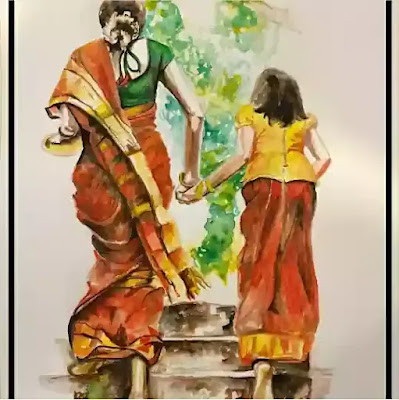Also Read
There is a third minor woman character in the novel. She is the Sister of Velan who is a villager of Mangala and comes in contact with Raju at the deserted shrine on the bank of the river and later on becomes his typically devoted disciple. The girl is fourteen years old. Velan has a lot of affection for her. He feeds her well and provides her good jewellery. He wants to marry her with his cousin's son. But she does not agree to it and runs away from home. She is discovered and brought back home. She sulks lying in a room, without eating or speaking to anyone. This saddens Velan a lot. He asks for Raju's advice on this issue. Raju tells him to bring her to him since he will talk to her. She is brought to Raju the next day but he does not talk to her as he is mentally preoccupied with his own problem of what he should do in future after his recent release from the jail. Coincidentally on her return home, the girl changes her mind. She agrees to marry the boy of Velan's choice and regrets her past conduct. This unexpected transformation in the girl confirms to the superstitious and naive mind of Velan that Raju is a saint who can work wonders. The girl is also said to have remarked. Somewhere that the Swami does not speak but one gets changed at his look. This incident of Velan's sister is significant as it is the first occurrence in the novel which makes Raju appear in the role of a saint. Later on, his sainthood becomes his cross as he dies undergoing a chimerical penance for the appeasement of the rain-god during the widely spread famine.
In this way, the novel offers a variety of women characters who differ among themselves in their thought, belief, habits, upbringing, ambitions and conduct. The inter-weaving of this diversity makes a complex narrative network of the novel. Rosie is a sad, miserable victim of circumstances. She symbolises a modern, educated woman who nourishes her own likes and dislikes. She unwittingly runs into likely risk of getting manipulated nefariously by a crook and cheat who apparently acts as her helper and promoter but essentially turns out as an exploiter for the sake of his materialistic self-aggrandisement. She meets a tragic fate for no wilful mistake on her part. She is maltreated both by her introvert husband and a fake sympathiser, Raju. She is more sinned against than sinning. On the other hand, Raju's mother belongs to the other typical class of homely, orthodox and tradition-abiding women.
